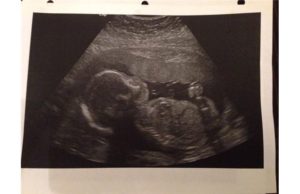We live in an age when lawmakers repeatedly appeal to science when making policy decisions. Shortly after Justin Trudeau became Prime Minister, he led a large contingent of politicians and bureaucrats to Paris for a conference on climate change. He told reporters, “We’ll demonstrate that we are serious about climate change. This means making decisions based on science.” Science, it seemed, mattered to Mr. Trudeau when forming public policy.
Except, there is an inconsistency in when science matters and when it doesn’t. When discussing human life, and the genesis of each human being, science is completely ignored and that includes the possible experience of pain a fetus may feel during the abortion procedure.

In Europe, restrictions on abortion after 12 weeks’ gestation are common and accepted, and, as such, fetal pain is addressed much differently than in Canada or the United States. In North America, many people come from a perspective of fear, where any consideration given to a fetus is viewed as an attack on women’s rights.
Studies from India and the United Kingdom refer to the rising demand for fetal surgery, and the “considerable evidence that the fetus may experience pain” leads to the uncomplicated conclusion that the right types and doses of anesthetic need to be determined for various procedures. It is clear that anesthesiologists require specialized training to address the needs of pregnant women and their pre-born children.
Multiple studies have shown that even babies who are not yet viable (before 20-24 weeks) exhibit consistent, measurable stress responses to pain. While many still debate the brain science behind this, a study out of the UK says these reactions themselves are enough to result in “a moral obligation to provide fetal anaesthesia and analgesia.” It has also been shown and attested to by multiple doctors specializing in the field of fetal surgery that “pain and stress may affect fetal survival and neurodevelopment.”
A study from Belgium admits that providing anesthesia prenatally presents a challenge, both from the perspective of its questionable necessity as well as dosage considerations. Still, recognizing the delicate balance when both mother and child need to be taken into account is fundamentally different from the Canadian question of whether both need to be taken into account.
Kirti Saxena, published in the Indian Journal of Anesthesia, states, “After surgery there are two patients to be cared for, and a second operating room should be available in case further surgery is needed in the neonate.”
As science and medicine continue to advance, fetal surgeries will become more common. Increased prenatal testing and diagnosis may lead to increased abortions, but seem just as likely to lead to increased demand for reliable fetal surgeries to give children their best chance at life.
In Canada, we need to follow the lead of our European counterparts, where fetal surgery and fetal anesthetic are inextricably linked, and where the humanity of the second patient is assumed, not demonized. This will allow fetal surgery as a field to improve and develop to become another support system for women. Our laws need to reflect the humanity of the second patient in fetal surgeries, honouring the mothers who choose to give their babies a chance as well as the doctors who pour their talents into such tiny, fragile patients.